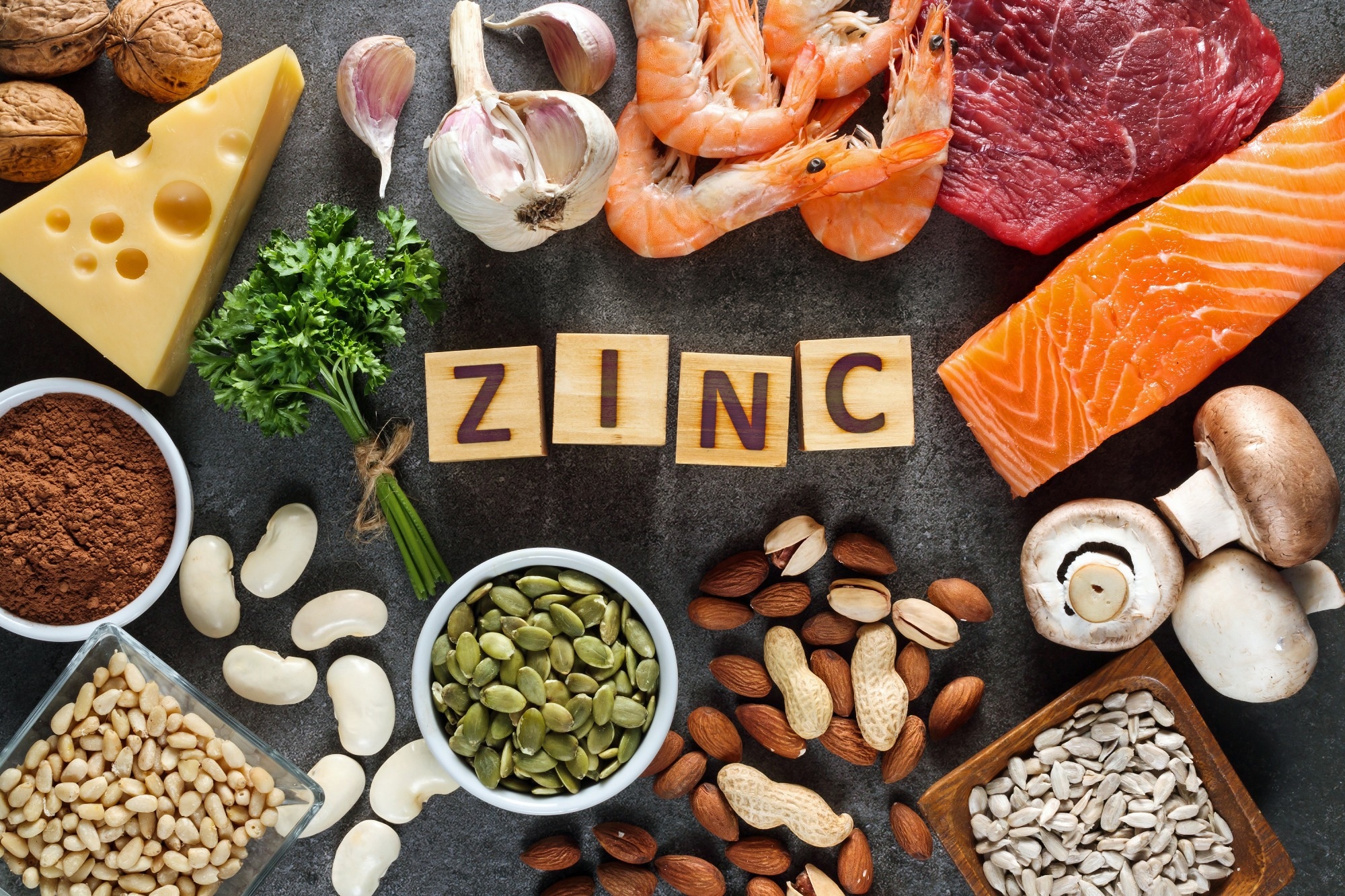New research suggests that consuming zinc within a specific range may reduce the risk of stroke, but more isn’t always better, highlighting the importance of targeted nutrition for brain health.
 Study: Dietary zinc intake associated with stroke in American adults - Image credit: Evan Lorne/Shutterstock.com
Study: Dietary zinc intake associated with stroke in American adults - Image credit: Evan Lorne/Shutterstock.com
A recent study published in the journal Scientific Reports examined the relationship between dietary zinc intake and stroke prevalence among U.S. adults.
What is a stroke?
Stroke occurs when blood flow to the brain is disrupted. There are two main types of stroke: ischemic stroke (IS) and hemorrhagic stroke. IS occurs when blood flow to the brain is blocked, while hemorrhagic stroke is caused by bleeding in or around the brain.
Previous studies have identified stroke to be the second leading cause of death worldwide. It is also the third most common cause of disability, which significantly increases socioeconomic burden, particularly during treatment. Lifestyle-based interventions, including dietary changes and physical activities, can potentially prevent and reduce stroke risk. Identifying the role of specific nutrients associated with stroke risk is essential. This information would positively help clinicians to manage stroke incidence more efficiently.
Biological functions of zinc
Zinc is a trace mineral with antioxidant and anti-inflammatory properties. It is involved in many biological functions, including cellular metabolism, cell proliferation, membrane stability, and the regulation of oxidative stress. Zinc also acts as a cofactor for antioxidant enzymes.
Several studies have demonstrated that zinc deficiency is associated with chronic diseases, such as diabetes, hypertension, seizures, Alzheimer’s disease, cardiovascular diseases (CVD), and depression. These studies have also indicated that stroke patients are more susceptible to lower serum zinc levels than healthy individuals.
Some findings suggest they may benefit from zinc supplements to aid neurological recovery following a stroke, but further research is needed to confirm this.
Understanding the precise association between zinc consumption and stroke prevalence is crucial.
About the study
The current study uses National Health and Nutrition Examination Survey (NHANES) data to conduct a cross-sectional analysis examining the potential relationship between dietary zinc intake and stroke prevalence. The authors hypothesized that individuals with a history of stroke have lower dietary zinc intake compared to the general population.
The NHANES dataset comprises multiple cross-sectional, ongoing, stratified probability surveys of non-institutionalized Americans. The Medical Condition Questionnaire (MCQ) was used to detect stroke. The Computer-Assisted Dietary Interview (CADI) System was used to accurately estimate the nutritional content based on individual food and drink intake, utilizing the U.S. Department of Agriculture’s Automated Multiple Pass Method (AMPM).
The present research considered individuals aged 18 or older who participated in four 2-year NHANES study cycles from 2013 to 2020. The average zinc intake of the selected candidates was assessed using NHANES dietary data. Three multivariable logistic regression models assessed the relationships between dietary zinc consumption and stroke. Model 1 was adjusted for sociodemographic variables, and Model 2 was adjusted for all the variables in Model 1, along with smoking status, BMI, and energy consumption. Model 3 contained all variables of Model 2, in addition to diabetes, coronary heart disease, hypertension, hypercholesterolemia, antihypertensive drug use, and preventive aspirin use.
Study findings
A total of 2,642 participants fulfilled the eligibility criteria for the current cross-sectional study. Participants were categorized into four quartiles (Q1–Q4) according to their dietary zinc intake levels: less than 6.08 mg/day (Q1), between 6.09 and 8.83 mg/day (Q2), between 8.84 and 13.02 mg/day (Q3), and more than 13.03 mg/day (Q4).
The mean age of the study cohort was 62.8 years, with 53.7% of participants being female. Increased zinc consumption was associated with individuals who had higher educational attainment, were married or cohabiting, belonged to younger age groups, had middle-class family incomes, had lower smoking rates, were of non-Hispanic white ethnicity, had higher energy consumption, and had a higher body mass index (BMI). The group of individuals showing an increased consumption of zinc consisted mainly of men.
Univariate analysis indicated that several factors were significantly associated with stroke, including age, higher family income, marital status, diabetes, non-Hispanic black ethnicity, coronary heart disease, smoking history, BMI, hypercholesterolemia, and medication use.
In multivariable analysis, an inverse association was observed between dietary zinc intake and stroke. After adjusting for potential confounders, individuals belonging to Q2 demonstrated a significant decrease in the odds of stroke compared to those in Q1. A restricted cubic spline (RCS) analysis established an L-shaped association between dietary zinc intake and stroke odds.
Individuals consuming zinc less than 8.82 mg per day exhibited an odd ratio (OR) for stroke prevalence of 0.858. The current study indicated that, among individuals consuming less than 8.82 mg/day of zinc, every additional mg of dietary zinc intake per day was associated with a 14.2% lower odds of stroke. However, this association was only observed in individuals consuming less than 8.82 mg/day. Higher intake beyond this threshold showed no further reduction in stroke odds.
These findings apply specifically to American adults; the study also found that many, particularly women, did not meet the recommended daily zinc intake.
The study also noted that it did not distinguish between ischemic and hemorrhagic stroke types, limiting the specificity of the findings.
The authors acknowledge limitations including the reliance on self-reported stroke diagnosis and dietary recall data, which may introduce recall or misclassification bias, and note that residual confounding from unmeasured variables cannot be excluded due to the cross-sectional study design.
Conclusions
The current study revealed that dietary zinc intake, within a specific range, was associated with reduced stroke prevalence. Beyond this, increasing zinc intake did not appear to provide further protective effects.
Further research, including randomized controlled trials, is required to assess whether increasing dietary zinc intake can effectively reduce stroke risk.